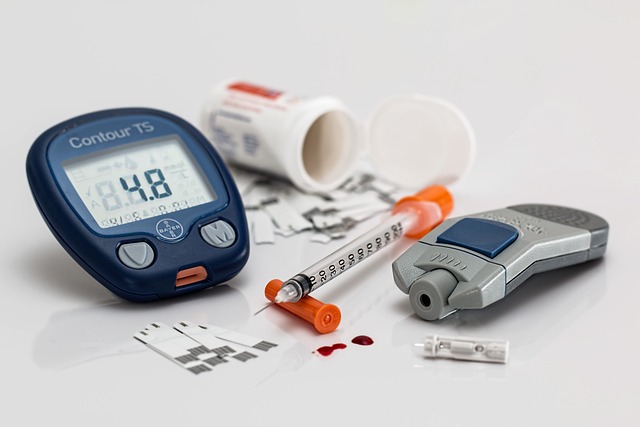
According to WHO birth deformities, stillbirths, preterm births, and infant fatalities have all been associated with mothers smoking during pregnancy or exposure to passive smoking in public places.
While secondhand smoke exposure during pregnancy is connected to a 23% increased risk of stillbirth and a 13% increased chance of congenital abnormality, maternal smoking during pregnancy is linked to a doubling of the risk of abrupt infant death and birth abnormalities.
Every year, secondhand smoke claims the lives of almost 1.2 million people, 65,000 of them die prematurely and avoidably before the age of 15. By the age of 15, children who have smoking-related careers are over 70% more likely to try smoking themselves.
The data from above is sufficient to avoid smoking and drinking alcohol during pregnancy. Here are some side effects if some mothers persist in smoking or consuming alcohol during pregnancy.
1. Premature Birth
Alcohol use and smoking during pregnancy can result in premature birth. A baby who is born before the full term may experience several health issues. Furthermore, these bad behaviors may cause low birth weight, which implies the baby is smaller than anticipated. The newborn may experience problems as a result.
They can also result in physiological anomalies like heart problems and facial deformities. It’s important to keep in mind that drinking alcohol while pregnant may result in fetal alcohol spectrum disorders (FASDs), which can have a long-term negative impact on the unborn child.
2. Developmental Delays
Pregnancy-related smoking and alcohol consumption might cause developmental delays in the fetus. It’s possible that the baby’s brain won’t develop properly, which will make learning and thinking challenging.
Furthermore, physical anomalies like limb problems, heart disorders, and face deformities can also happen. Pregnant women who smoke and drink run the risk of giving their offspring long-term behavioral problems including ADHD and hyperactivity.
3. Birth Defects
Alcohol and smoking during pregnancy might cause physical birth abnormalities in the unborn child. These flaws may impair a baby’s physical development or physiological processes. For instance, limb abnormalities, cardiac problems, and facial deformities can happen.
It’s crucial to remember that a pregnant woman who smokes or consumes large amounts of alcohol increases her chance of congenital problems.
4. Less Fetal Mobility
Fetal mobility inside the womb can be decreased by smoking and drinking alcohol while pregnant. This is a well-known result of these actions. The hazardous compounds from drinking alcohol and smoking can have an impact on a baby’s development, which can reduce the baby’s activity levels. It’s crucial to remember that decreased fetal activity may indicate the baby is in distress and may have health problems.
Therefore, to guarantee the greatest potential health results for both themselves and their developing babies, pregnant women are strongly encouraged to forget smoking and drinking completely.
5. Damaged Lungs
The mother’s and the unborn child’s lungs can suffer damage from smoking and drinking while pregnant. Alcohol and cigarettes both include harmful chemicals that can harm fragile lung tissues and impede their normal function. The baby may develop asthma or wheezing as a result, among other respiratory issues. The harmful chemicals in cigarette smoke also raise the child’s risk of long-term lung damage and respiratory issues.
Pregnant women must refrain from all forms of drinking and smoking to preserve the health of their lungs and give their unborn children a healthy start.
6. Hindrance In Brain Development
Smoking and drinking alcohol while pregnant can damage the brain development of the unborn child.
The development of the baby’s brain may be harmed by these dangerous drugs. Long-term effects like cognitive deficits and developmental delays may result from this. Pregnant women need to be informed that smoking and drinking might have detrimental effects on the brain development of the unborn child.
7. Less Weight
Alcohol and smoking during pregnancy can significantly reduce the weight of the unborn child. Smoking or drinking while pregnant stunts the baby’s growth, which lowers the birth weight. This indicates that the infant is delivered lighter than anticipated.
The newborn may experience several health issues as a result, raising the possibility of difficulties. To maintain the baby’s proper development, pregnant mothers must fully abstain from drinking and smoking.
8. FASD
The disorder known as Fetal Alcohol Spectrum Disorder (FASD) may develop if a woman smokes and drinks alcohol while she is pregnant.
The development of the child’s physical, behavioral, and intellectual aspects can all be impacted by FASD.
Pregnant women should be aware that drinking and smoking might result in FASD. These dangerous compounds may result in the baby’s preterm birth, low birth weight, and developmental difficulties. Additional potential side effects include physical anomalies, respiratory problems, an elevated risk of miscarriage, and persistent behavioral challenges.
Conclusion
During pregnancy, it is essential to steer clear of smoking and alcohol consumption for the sake of your baby’s health and your own well-being. These harmful substances can lead to serious complications and birth defects, potentially harming your little one’s development. By staying away from smoking and alcohol, you can ensure that both you and your baby are in fine fettle throughout the pregnancy journey. Prioritizing a healthy lifestyle will contribute to a positive and joyful pregnancy experience.
Disclaimer: The information provided in this blog is for educational and informational purposes only. It is not intended to be a substitute for professional medical advice, diagnosis, or treatment.


